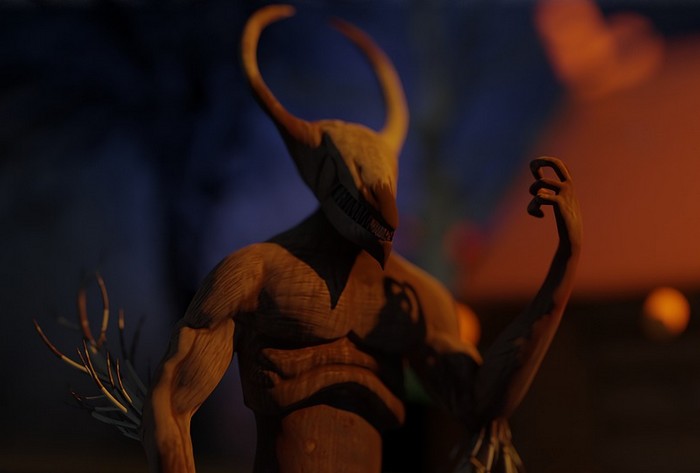In Puźniki in the west of Ukraine, in the Tarnopolskie region, there was a solemn ceremony of over 40 Poles – victims of a crime committed by the Ukrainian Insurgency Army in February 1945. The remains of the murdered were exhumed in the spring of that year as a consequence of the works of the Polish-Ukrainian investigation team.
The ceremony brought together representatives of Polish and Ukrainian authorities, families of the murdered and witnesses of the massacre. Among the participants was Dr. Karol Polejowski, Deputy president of the Institute of National Memory. The celebration began with Holy Mass and ended with the laying of coffins to the common grave. Not only was the spirit of mourning floating over the ceremony but besides the burden of historical truth.
The crime in Puźniki occurred at night from 12 to 13 February 1945. At that time the village was inhabited almost exclusively by Poles – there were only a fewer mixed and Ukrainian families. Under cover of night, the village was surrounded and attacked from respective sides by a sotney of the Ukrainian Insurgency Army from the curing of Petra Chamczuk, nicknamed “Bystra”. amazed defenders undertook an uncoordinated fight, and residents sought shelter in buildings prepared previously as defensive points – in the church, in the rectory, in the neighbors' homes. any people tried to flee into the forest, others hid in chapels and basements. Most of the victims were killed in Borkowski's ditch that cut through the village – there the torturers killed respective twelve women and children, mainly utilizing axes and bayonets. According to various sources, 50 to 120 people died.
From April 24 to May 10, 2025, the remains were exhumed in Puźniki. Polish and Ukrainian experts in forensic medicine, archaeology, genetics and anthropology conducted the work. Management took over the Pomeranian Medical University in Szczecin. 42 skeletons were extracted, including at least 11 of minors, 16 women and 10 men. 172 individual items were besides found. Genetic tests are ongoing on the basis of samples taken from 50 relatives of the victims – they will let to accurately identify the buried.
A letter from the president of the Republic of Poland Karol Nawrocki was sent to the participants of the funeral, read by the head of the global Policy Bureau of the Polish National Police Office Marcin Przycz. The president began by quoting from Adam Mickiewicz's “Dziads”:
“If I forget them, You, God in heaven, forget me”—these words of Grandpas Adam Mickiewicz, although they concern another erstwhile Polish martyrs in the east, besides present they resound in our hearts and minds. They are like an epitaph, like a mourning song that we say goodbye to murdered countrymen from Puźniki village in the erstwhile Tarnopolskie Voivodeship.
The president clearly stressed that the memory of the crimes in Volyn, Podol and Galicia is inactive alive and current:
"Anyone who has even heard of the genocide in Volyn, Podol, Galicia, is incapable to pass by indifferent to this story. No right, honest man – and surely no 1 who calls himself a Pole – can accept this tragedy as a notable, distant episode of past that unnecessarily bothers us more than 80 years later.”
The letter includes words of compassion towards the families of the victims, but besides a firm reminder of the work of national memory:
“We, Poles, in no way are looking for revenge, but at the same time we do not want and cannot forget tens of thousands of our countrymen – men, women and children – killed just due to the fact that they spoke and prayed in Polish. It is besides not in our power to forgive on their behalf – nor to forget that the Ukrainian chauvinists, who transcend the human imagination of torture and death, have caused them.”
There was a bitter reflection on modern obstacles in the reconciliation process:
"Today I am praying to you, with my heart I am reasoning of the last moments of Poles – the inhabitants of Puźniki village, burned and murdered on the night from 12 to 13 February 1945 by UPA members. [...] Here is simply a monument not only to the leaders of the OUN–B, but besides a monument to the commander of the crime sotnia, who participated in the extermination of the Puźnik residents, stands nearly 50 kilometres distant in the town of Czortków. We consider this unacceptable to the relatives of the murdered and the full Polish Nation."
He pointed out that reconciliation is only possible in the spirit of fact and justice, not by the silence of the crime:
“No political rations and geopolitical calculations, no ideology or past regrets justify smoking children alive, torturing pregnant women in front of their husbands, mutilating people with farm tools, so that they die slow in terrible pain.”
He pointed out that only a fair look at the past can be the foundation of genuine dialog and cooperation:
"The Christian thought has shaped them to a large extent, ordering everyone to forgive, even the top sin--but subject to confession, regret for his evil and even symbolic reparation. [...] The glorification of criminals – people contaminated with collaboration with Nazi Germany and who are baked in their cultural hatred – has nothing to do with this vision.”
At the same time, the president pointed out that today's celebration could be the beginning of a fresh chapter in relations between Poland and Ukraine:
"For us Poles, today's celebration has the rank of an crucial symbol. The symbol that will start a lasting process – a process of sincere forgiveness and reconciliation. Therefore, I express my hope and anticipation that the next funerals of the victims will follow, in all the towns where a genocide crime has been committed in Poles.”
He concluded with hopeful words, referring to the upcoming 370th anniversary of the Hague Union:
"I very much hope that by then the process of authentic Polish-Ukrainian reconciliation will begin, and the bleeding wound of genocide committed in Volyn, Podol and Galicia will begin to heal. Let fact and justice become the cornerstone of our friendship, and the beginning of a fresh chapter in common past will open to both of our nations broad prospects of surviving in peace, abundance and common respect."
“Eternal memory and eternal peace for the victims of the crimes in Puźniki!
St. Michael Archangel, the slayer of the spirit of lie and division, patron of Ukraine – support our efforts for just reconciliation!”
The ceremony in the Puffers was not just an act of remembrance of the victims. He was at the same time an appeal for truth, honesty and common building the future on the foundation of justice. In the shadow of the tragedy of 80 years ago, 1 of the most crucial messages of contemporary Polish-Ukrainian relations sounded – without fact there will be no reconciliation.
In Puźniki in the west of Ukraine (Tarnopolski Oblast) there was a solemn ceremony of more than 40 Poles – victims of a crime committed by UPA 80 years ago – whose remains were exhumed in the spring of 2025.
Representatives of the Polish and Ukrainian authorities and representatives of... pic.twitter.com/e737XhCa0k

















